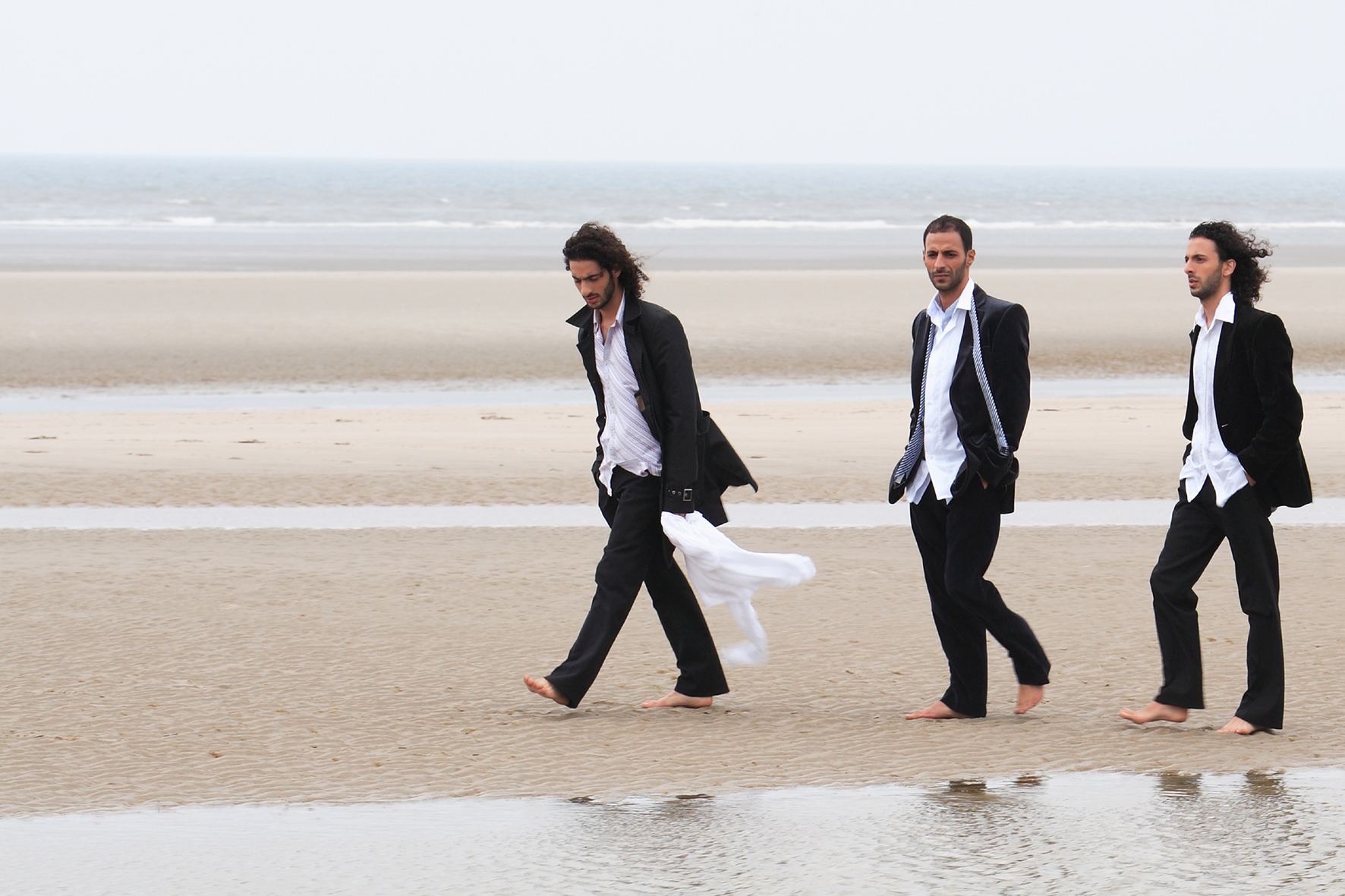It is inevitable that a dancer watching a dance performance, a film-maker watching a film, a musician watching a concert will take notice of details and little tricks that are not available to most others. A skilful camera movement, a new interpretation of a well-known choreography, a note that is played with a new insight…But, albeit rarely, there are instances when something happens on the stage or screen so that, in a moment, something flashes from the spectacle with such extreme power that even the most ignorant feels its presence. And when that happens, even though one lacks the words, the terminology, and the knowledge to pinpoint and define exactly what happened, one feels it instantly and instinctively.
This is exactly what happens when you watch Le Trio Joubran play live on stage. The harmony between these three oud playing brothers is so intense that it becomes visible, it becomes tactile. You may not know enough about music to understand it; you may not know enough about playing techniques and what it is that they do to make them so good at what they do, but you know with absolute certainty that there is an unbelievable and rarely seen harmony between them.
Le Trio Joubran is formed of three Palestinian brothers, Adnan, Samir and Wissam, from Nazareth, born to a family of oud makers. The eldest, Samir Joubran, was already an established oud player in the region when he decided to bring his brothers together to form an oud trio. Their first album as a trio, Randana, was released in 2005, followed by their critically acclaimed second album Majaz in 2007.

[Le Trio Joubran. Image from www.letriojoubran.com]
I first discovered Le Trio Joubran two years ago by pure coincidence. It was one of those “play me music similar to this” kind of situations: I asked LastFm to play me music similar to Marcel Khalife. While it was playing, I tried to get some writing done (music can help you unblock yourself). Suddenly something started to play that made me stop and want to find out what it was. It turned out to be Le Trio Joubran’s song “Masar,” from the album Majaz. I started to follow their music as Alice would follow the white rabbit.
After listening two of their albums back to back, and being mesmerised by their music, I wanted to see if they were playing live anytime soon: it turned out they would be, but it was miles away from where I lived. I was in London and they were going to play in Wales. Once you are lured by the music, there is no stopping: I went to Wales, and it was worth every minute and every penny I spent getting there. It was a stunning performance. Recently, after discovering that they had released their third album, AsFar (meaning “journey” in Arabic but also “as far” in English), I discovered that they were coming to London to participate in an event in memory of the late Palestinian poet Mahmoud Darwish. Once again, with the sort of excitement that rarely hits, I booked my ticket.
In this performance, titled “In the Shadow of Words,” Le Trio Joubran accompany Darwish’s poetry with their music. As Darwish’s powerful voice reads the poems in Arabic, the English translations are projected on a screen on the stage and the band play their music to the words. But make no mistake: Le Trio Joubran do not, for a second, try to “enhance” the powerful music that effortlessly reaches its audience from Darwish’s poetry; they merely accompany it, at times only by listening to it and at times by answering it back with compassion. This also seems to be the best way to “read” poetry in a language that is not yours: As Darwish reads his poems with an incredible passion and emotion, opening every window, breathing every breath, puncturing every wound, a door opens to a new world where words mean more than they ever did, so much more, so that even without the translation, a non-Arabic speaker would know what it means in his/her heart.
Whether it is solely due to Darwish’s mastery over words and over his language (which makes him who he is — “I am my language,” says Darwish) or due to the fact that he speaks them as if the poems are writing themselves, as he says in one of his poems, there is an out-of-this-world feeling to the experience of listening to his poetry recited by his voice, as if the words are rushing to his lips and forcing themselves out without much of the poet’s control. As if he is speaking life itself, and life itself happens to be a poem that only a skilful pair of ears can hear. Darwish does. He did. The Joubran brothers dive into this beautiful sea of words and emotions with their instruments, and converse with the poet with great passion.
Le Trio Joubran will be touring the U.S. in April with their enchanting percussionist Youssef Hbeisch; details regarding their upcoming shows can be found here.